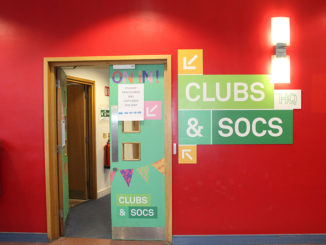
[dropcap]There[/dropcap] was a pungent stench of weed, cigarettes and stale alcohol that clouded the air of the small room. Excited chatter and electronic music pulsated throughout the empty space while the gyrating bodies were getting drunk and sweaty in preparation of hitting the town.
In the corner of the party, Stuart and his friends Blondie and Danny, were all huddled around a table, each with their smartphones in hand. They all had their gambling apps opened on their phones as they sipped on their cans of Budweiser. They chatted animatedly about the bets they had placed during the day.
“What was the final score in the Watford and Leicester City match?” Stuart asked.
“It finished 2-1 to Watford,” his friend, who is known as Blondie, replied.
“No! I needed them to draw to win €200,” Stuart cried out looking distraught. The other guys merely laughed at his reaction
Gambling has become just as interwoven with student life as partying and getting drunk has, and that is down to the fast-paced evolution of gambling apps. The Annenberg Public Policy Center surveyed college students in 2010 and compared the results to their 2008 survey. They found that the monthly use of mobile gambling sites among male college students increased from 4.4 percent in 2008 to 16 percent in 2010.
While these statistics are based on American students, the data is still applicable here in Ireland. The Union of Students in Ireland’s national congress took place in March of this year, and mobile gambling was a prevalent topic as students told their stories of gambling away rent and tuition money through these apps.
“The advent of 24/7 accessibility for gambling products has generated an increase in gambling-related harm, globally. The fact that a person can have a mobile-bookmakers in their pocket all day, every day is a recipe for problems, especially for students,” said Barry Grant, addiction counsellor and the founder of Problem Gambling Ireland.
These mobile gambling apps often send free incentives if they notice that the app hasn’t been used in a while which is hard to refuse if you’re living away from home for the first time and struggling financially, Grant said. Their popularity is definitely intensifying as a result. Paddy Power accredited their 23 percent growth in total net profit in 2015 to mobile, with 80 percent of active customers utilising mobile transactions.
Gambling has always been engrained in Irish culture but it was more prevalent in older generations, Grant said. Now, one third of people who contact Gamble Aware are under the age of 22, said the Director of Operations at Gamble Aware, Brian Barry. That’s worrying because adolescents are 2 – 3 times more likely to develop a gambling addiction than adults, the Institute of Public Health said. Research conducted by the Columbia University Medical Center shows that half of the 16 million people in America with gambling problems are young adults.
After Stuart’s friends stopped laughing at his loss, their conversation about betting resumed. Danny’s friends mocked him for picking Liverpool in his accumulator and made him knock back his can as penance while people chanted ‘Chug! Chug! Chug!’.
Millennials are known for having their mobile phones glued to their hands and these gambling applications take full advantage of that. The snack-like behaviour of checking mobile phones can lead to an increase in problem gambling, according to a journal article entitled Understanding the psychology of mobile gambling: a behavioural synthesis.
People generally tend to spend between 1 and 3 hours a day on the apps they have downloaded and this intermittent schedule of checking betting apps increases the likelihood of developing an unhealthy relationship with gambling.
Jack Leahy, the Deputy President of the Union of Students in Ireland (USI), said they’re working with Problem Gambling Ireland to tackle the issue. “We want to work with someone outside of the gambling industry because we believe it will reach epidemic levels if nothing is done,” he said.
There have been attempts to stop this increment in mobile gambling but none have prevailed as of yet. There is now a 1 percent tax on winnings from online gambling but it has not proved to be a deterrent. Alan Shatter, former Minister for Justice, introduced a Gambling Control Bill in 2013 to try and combat this surge in gambling but it has not passed through the Oireachtas yet. The Government said they will push the bill forward as soon as it’s ‘feasible’.
Stuart isn’t surprised that more students are beginning to gamble. He said: “It’s like a cultural thing. All the guys do it and then we all laugh about it. It’s just something to do when we’re bored because all we need is a phone. It’s a good way to try and make money if you’re a little short too.”



